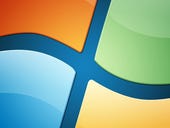
Christopher Dawson
Christopher Dawson grew up in Seattle, back in the days of pre-antitrust Microsoft, coffeeshops owned by something other than Starbucks, and really loud, inarticulate music. He escaped to the right coast in the early 90's and received a deg…ree in Information Systems from Johns Hopkins University. While there, he began a career in health and educational information systems, with a focus on IT in public health. This focus led him to several positions at Johns Hopkins, a couple-year stint in private industry, 5 years teaching high school math and technology, 2 years as the technology director for his local school district, and 2 years as Vice President of Business Development for WIzIQ, a virtual classroom and learning network provider. Most recently, he has focused on writing, consulting, and advocacy around the smart use of technology in the classroom and education reform. A liberal dose of freelance writing about technology for SMBs helps pay the bills and support his growing hobby farm/soapbox for sustainable living and agriculture. He lives with his wife, five kids (yes, 5), 2 dogs, a flock of chickens, and a hateful cat in a small town in north-central Massachusetts.

